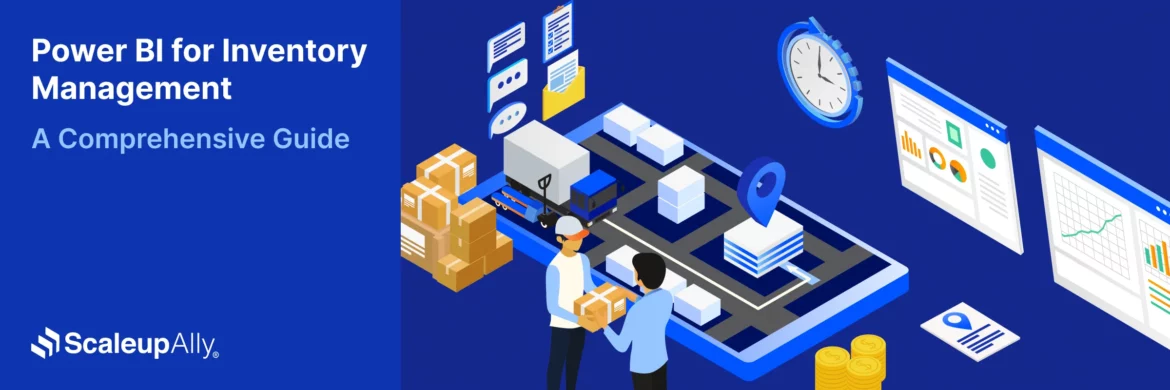
Why Financial Analytics is Important for Businesses?
Tarsem Singh | December 26, 2023 , 7 min read
Table Of Content
Succeeding in business takes more than just a strong entrepreneurial drive. It requires making smart decisions based on reliable information and understanding. That’s where financial analytics comes in—it affects all significant business choices, so it is essential to focus on getting the right data and using analytics effectively.
For startups and new business owners, embracing financial analytics can make a significant difference in the challenges of the modern market.
What is Financial Analytics?
- What is Financial Analytics?
- Benefits of Financial Analytics for Businesses
- Applications of Financial Analytics in Business
- Advanced Applications of Financial Analytics
- Tips to Integrate Financial Analytics into Your Business
- Practical Steps for Startups
- Overcoming Challenges and Maximizing Impact
- Conclusion
- Frequently Asked Questions
Financial analytics involves using various tools and methods to merge and examine datasets to understand how your organization performs financially. By consolidating data from all your systems, you can get a complete picture of your business and gain valuable insights that can help you forecast and enhance your performance.
Benefits of Financial Analytics for Businesses
Financial analytics involves analyzing historical financial data, current market trends, and other relevant information to make informed predictions and decisions. Some of the benefits incorporating financial analytics in your business workflows are:
1. Strategic Planning and Forecasting
Financial analytics acts like a crystal ball for businesses, helping them accurately predict the future. This is especially useful for startups, which often face uncertainty. Using financial analytics, startups can forecast market trends and adjust their plans accordingly. This helps them turn guesswork into carefully considered risks—especially when supported by expert data analytics services that provide reliable forecasting models and deeper market insights.
2. Resource Optimization
Efficiency is crucial for all businesses, especially startups that have limited resources. Financial analytics helps carefully study how resources are used. This optimization isn’t just about saving money; it’s about smartly investing in areas that offer the best returns.
3. Risk Management
Starting a business always involves risks. Financial analytics can help protect against these risks by providing information about possible problems and suggesting ways to deal with them. It’s like a compass that helps new businesses steer through financial difficulties with certainty.
4. Real-time Decision Making
Financial analytics gives business owners up-to-date information, helping them make quick decisions. For new businesses, moving fast like this can make a big difference in taking advantage of opportunities and dealing with problems quickly.
Applications of Financial Analytics in Business
Financial analytics isn’t a one-size-fits-all solution; its applications are diverse, catering to various aspects of business operations.
1. Budgeting and Financial Planning
Startups often operate on tight budgets. Financial analytics aids in the creation of realistic budgets, aligning financial goals with the overarching business strategy. It ensures that every penny spent contributes to the enterprise’s long-term success.
2. Customer Profitability Analysis
For startups aiming to grow, it’s crucial to grasp how customers behave. Financial analytics goes beyond just tracking transactions. It provides valuable insights into which customers are most profitable. With this knowledge, businesses can tailor their strategies to keep their most valuable customers happy and make their marketing efforts more effective.
3. Performance Monitoring
For startups, keeping an eye on how well they’re doing isn’t just something they do because they have to; it’s something they need to do. Financial analytics gives them a complete picture of the most important things that show how well they’re doing, so they can track how things are going, find any problems, and make changes if needed.
Advanced Applications of Financial Analytics
In our journey through financial analytics, we move beyond the basics to explore advanced applications that can truly transform how businesses operate.
1. Predictive Analytics
While historical data provides valuable insights, predictive analytics takes it further. For startups, foreseeing market trends and customer behaviors is indispensable. With its predictive capabilities, financial analytics empowers businesses to anticipate future developments, enabling proactive decision-making.
2. Fraud Detection and Security
Digital transactions are widespread, which means there’s a constant risk of fraud. Using advanced algorithms, financial analytics is crucial in spotting any unusual or suspicious activity. For startups, ensuring the security of financial transactions isn’t just about following rules; it’s also about building trust with their customers.
3. Supply Chain Optimization
A well-organized supply chain gives businesses an edge when they deal with physical products. Financial analytics carefully examines supply chain data to find any problems, improve how much inventory is kept, and ensure the supply chain works well with the company’s financial plans.
Tips to Integrate Financial Analytics into Your Business
Recognizing how vital financial analytics is marks only the beginning. Its true worth comes from smoothly incorporating it into every aspect of your business operations.
Here are some trips that will help you in doing so:
1. Invest in User-Friendly Tools
Startups often operate with lean teams that might not have extensive data analysis expertise. Choose financial analytics tools that are user-friendly and offer intuitive interfaces. The goal is to empower every team member to harness the power of data.
2. Continuous Training and Development
Financial analytics is dynamic, with new tools and techniques emerging regularly. Provide ongoing training for your team to ensure they stay abreast of the latest developments. A well-informed team can extract maximum value from financial analytics.
3. Align with Business Goals
Financial analytics shouldn’t be a standalone function. It should align seamlessly with your business goals. Define key performance indicators (KPIs) that directly contribute to your overarching objectives. This ensures that every analytical endeavor is purposeful.
4. Embrace Scalability
As your startup grows, so will the volume and complexity of your data. Choose financial analytics solutions that can scale with your business. Scalability ensures that your analytical capabilities evolve in tandem with your enterprise.
Practical Steps for Startups
Understanding the theoretical aspects is essential, but implementing financial analytics in a startup setting requires a pragmatic approach.
1. Start Small, Scale Gradually
Begin with a focused approach. Identify a specific area financial analytics can immediately impact, such as budgeting or customer analysis. As your team becomes more adept, gradually expand the scope.
2. Foster a Data-Driven Culture
Incorporate a data-driven mindset into your organizational culture. Encourage employees to base their decisions on data and insights rather than intuition alone. This cultural shift is fundamental for the effective integration of financial analytics.
3. Collaborate Across Departments
Financial analytics isn’t confined to the finance department. Collaboration across departments—marketing, operations, and sales—is crucial. Break down silos and encourage a cross-functional approach to data analysis.
Overcoming Challenges and Maximizing Impact
As we conclude our exploration of financial analytics, it’s crucial to address challenges that startups might encounter in their journey toward data-driven decision-making.
1. Data Quality Assurance
The adage “garbage in, garbage out” holds particularly true in financial analytics. Startups must invest in ensuring the accuracy and reliability of their data sources. Implement rigorous data quality assurance processes to fortify the foundation of your analytical endeavors.
2. Privacy and Compliance
Understanding and following data privacy rules is very important, especially as these rules change worldwide. Startups using customer information must follow laws like GDPR and HIPAA. Adding privacy protections to your financial analysis protects data and helps keep your customers’ trust.
3. Technological Integration
Picking the right technology setup is crucial. Ensure your financial analysis tools can smoothly work with your current systems. The goal is to build a connected environment where data moves easily, helping you understand your business.
Conclusion
Financial analytics is incredibly important for startups and new business owners. It’s more than just crunching numbers; it’s a valuable strategy that, when used well, can help your business succeed. By tackling challenges, embracing data-driven practices, and making the most of financial analytics, startups can survive and thrive in today’s competitive market.
Frequently Asked Questions
Q: Is financial analytics only for large enterprises, or can small businesses benefit too?
Financial analytics is valuable for businesses of all sizes. While larger enterprises might have more extensive data, startups and small businesses can leverage financial analytics to make agile and informed decisions, optimize resources, and navigate the competitive landscape effectively.
Q: Why is financial analytics important for startups?
Startups operate in dynamic environments with limited resources. Financial analytics empowers startups to make informed decisions, forecast market trends, optimize resource allocation, and manage risks effectively. It provides a strategic advantage in navigating the complexities of the business landscape.
Q: How can financial analytics benefit my business?
Financial analytics provides several benefits, including strategic planning and forecasting, resource optimization, risk management, and real-time decision-making. It enables businesses to make data-driven decisions, ensuring that every action contributes to the enterprise’s long-term success.
Related Blogs

Data Warehouse Cost Breakdown: Factors, Pricing Models & Platform Comparison
Discover how much a data warehouse costs in 2025. Explore pricing models, key factors, and platform comparisons to plan your data budget effectively.
Tarsem Singh
Nov 6 ,
14 min read

How Much Do Integrations Cost? [Pricing Breakdown & Key Insights]
Learn how much integrations cost, key factors influencing pricing, hidden expenses to avoid, and effective ways to reduce integration costs.
Tarsem Singh
Nov 6 ,
9 min read

Power BI for Inventory Management: A Comprehensive Guide
Explore the hidden power of Power BI for inventory management and how it provides businesses with powerful analytics and visualization capabilities.
Tarsem Singh
Oct 8 ,
19 min read


